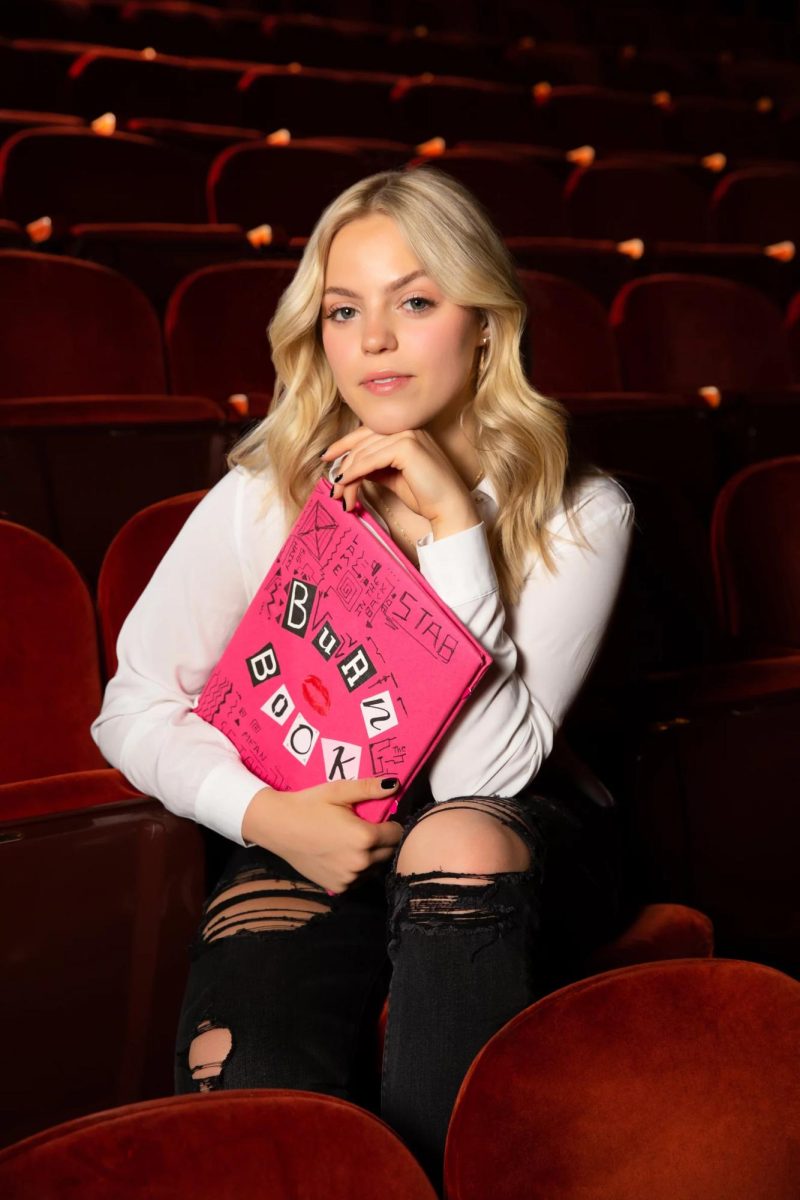The camera slowly pans upwards as the lines “My name is Regina George. And I am a massive deal” echo through the theater. The crowd goes wild, and shouts of “mother” and “I’m dying” abound from all corners. Reneé Rapp’s casting as Regina George is just one example of how the new “Mean Girls” remake’s castings make the movie shine even as it appears confused over what it’s trying to accomplish.
As two people currently involved in Lakeside’s production of “Mean Girls” (March 14, 15, and 16 of 2024), we’re acutely aware of the changes made to the songs from the original musical. The witty and fast-paced original Broadway soundtrack was replaced with more pop-esque beats in the movie-musical. This is the topic on which we disagreed: I (Zane) appreciated the more modern sound, especially in songs like “Sexy,” while I (Lucy) think they should’ve followed the original more closely instead of switching to lackluster lo-fi beats.
Seemingly caught between Broadway and Los Angeles, the movie commits halfway to its very nature. With marketing seemingly hiding the fact that the movie was a musical and most of both the original songs and iconic dialogue were cut, the movie simultaneously fails to recreate the 2004 original movie and the full musical. Why, oh why, did they cut so many songs?
However, “Mean Girls” shines when it comes to castings. Besides Rapp as Regina George, other notable castings include Auli’i Carvalho (voice actor for Moana in “Moana”) as Janis and Jaquel Spivey as Damien. Where the 2004 original “Mean Girls” hesitantly explored these characters’ queerness, implying rather than outright stating, the modern remake leans into their identities and pride.
In a press interview, Spivey reflected on his character: “In film and television, queerness always has a certain look, and it was nice to show that there are plus-size queer people who are fun and joyful … and they’re not getting slammed into lockers.” Janis and Damien’s energy, especially during hit number “Revenge Party,” defines the vibrancy of the firm. Avantika Vandanpu, who plays Karen and stars in the Halloween-themed song “Sexy,” was another
standout actor in terms of her vocal ability and energy.
Protagonist Cady Heron (played by Angourie Rice) has faced the brunt of online criticism, with her low energy, lack of enunciation, and aggressively autotuned lines eliciting mocking TikToks (being completely honest, we may have participated in this parodying). We have argued back and forth about the true quality of her vocals, but the point remains: she is not a Broadway singer. With the movie’s toned-down soundtrack, her vocals failed to add the needed energy like Rapp’s, Vandanapu’s, and Carvalho’s did.
Another lowlight of the film was the rampant product placement. It seems that Regina George is not only a massive deal, but a massive brand deal. The marketing team must have forgotten to rewatch the clips before sending them over to production, because they were awful. The products featured were mostly by e.l.f. Cosmetics, a budget makeup company. With writing far worse than even the “Barbie” movie’s Chevrolet car chase scene, the scripting and camera work feel incredibly stilted. The actors tried their best, but when Regina drops her lip oil in the bathroom sink, the camera lingers on it for far too long. Anyway, Regina seems like much more of a Dior girl than an e.l.f.-user. Additionally (major spoiler alert), Lindsey Lohan’s surprise cameo as the math competition adjudicator was immediately ruined by one of her first lines being, “Thank you to SeatGeek for sponsoring this contest.” SeatGeek. At a math competition. We’re so done.
While the moments of bad singing, awkward dancing, and overdone marketing might have temporarily broken viewers’ immersion in the world of North Shore High School, the environment of the movie itself is exciting and relatable. The creators’ ability to update a 20-year-old movie without leaning too far into clichéd internet-based tropes is commendable. With some scenes cropped as if recorded by phone cameras, just the right amount of classic “viral post” montages, and a couple celebrity cameos sprinkled in, the internet has a presence in this movie, but it’s not overwhelming. The original “Mean Girls” contained several problematic characters and tropes, and I sighed with relief upon realizing most had been removed for the updated version.
Much of this article may have been us tearing the movie to shreds, but that doesn’t mean that it wasn’t enjoyable. Watching the movie only made me more excited to be a part of the musical, and I can’t wait for it to be released on streaming so I can rewatch and learn Vandanapu’s dance break in “Sexy.” Some of the choreography, especially during “Someone Gets Hurt” is truly exceptional and takes advantage of cinematographic elements that would be impossible to perform on stage.
Ultimately, “Mean Girls” suffers most from its lack of commitment to the musical — it feels like even the directors thought people wouldn’t like a musical and tried to minimize the “musicalness” as much as possible. Had the movie embraced itself more, it would have gone from being an entertaining one-time watch to perhaps besting even the original “Mean Girls.”



